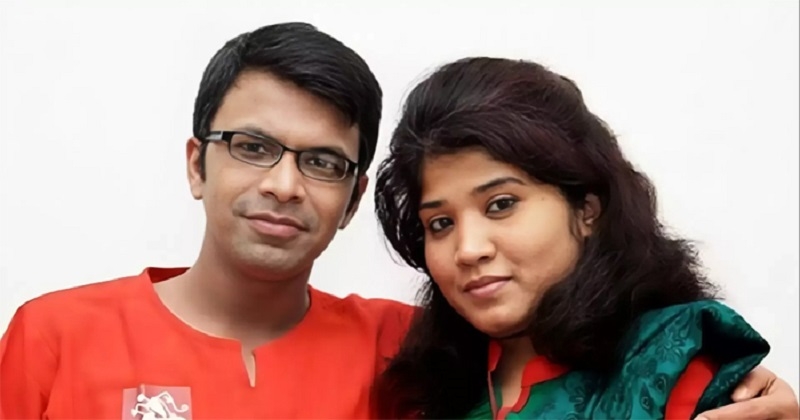- Puppet show enchants Children as Boi Mela comes alive on day 2 |
- DSCC Admin Salam’s drive to make South Dhaka a ‘clean city’ |
- 274 Taliban Dead, 55 Pakistan Troops Killed |
- Now 'open war' with Afghanistan after latest strikes |
- Dhaka's air quality fourth worst in world on Friday morning |
Justice Delayed for 117th Time in Sagar-Runi Murder Case

More than thirteen years after the shocking murder of journalist couple Sagar Sarowar and Meherun Runi, justice remains elusive. In a fresh blow to the long-stalled investigation, a Dhaka court on Tuesday deferred submission of the probe report for the 117th time.
The Police Bureau of Investigation (PBI), currently handling the case, failed once again to submit its findings on the scheduled date of April 15. In response, Dhaka Metropolitan Magistrate M A Azharul Islam extended the deadline, setting May 21 as the next date for report submission, according to the General Registration Branch of Sher-e-Bangla Nagar Police Station.
The high-profile double murder took place on the night of February 11, 2012, when Sagar, then news editor at Maasranga Television, and Runi, a senior reporter at ATN Bangla, were found brutally stabbed to death in their West Rajabazar flat in Dhaka. Their five-year-old son was at home at the time but was unharmed.
The gruesome killings stunned the nation and sparked an outpouring of anger across the country, particularly within the journalist community. Protests erupted nationwide as media professionals demanded swift and transparent justice.
Runi’s brother, Nowsher Alam Roman, filed a murder case with Sher-e-Bangla Nagar Police Station the day after the incident. Initially assigned to a sub-inspector, the case was later transferred to the Detective Branch (DB) of Dhaka Metropolitan Police due to its high-profile nature and mounting public pressure. However, the DB made no significant progress, prompting the High Court on April 18, 2012, to reassign the investigation to the Rapid Action Battalion (RAB).
Despite years of RAB involvement, no major breakthroughs were achieved. In a turning point on September 30, 2024, a High Court bench comprising Justice Farah Mahbub and Justice Muhammad Mahbub Ul Islam removed RAB from the case, citing their prolonged failure to deliver results. The bench ordered the Ministry of Home Affairs to form a high-powered task force to monitor the investigation and instructed submission of a progress report within six months.
Since then, the case has been under the purview of the PBI. Yet, no suspects have been publicly identified, and no significant progress has been shared. The consistent failure to submit an investigation report—now for the 117th time—has drawn sharp criticism from journalists, legal experts, and rights activists.
“This level of delay in a case involving such prominent victims is not just unacceptable—it’s a national disgrace,” said a senior journalist, speaking on condition of anonymity. “If justice for Sagar and Runi can be endlessly postponed, what hope is there for the average citizen?”
Legal analysts warn that prolonged delays compromise justice by degrading evidence, weakening witness memories, and eroding public faith in the judicial system.
The Sagar-Runi case has become a grim symbol of the broader dysfunctions plaguing Bangladesh’s criminal justice system—especially when it comes to high-profile cases involving journalists, human rights defenders, and other vulnerable groups. It highlights the urgent need for systemic reform, political neutrality in investigations, and genuine accountability.
Successive governments have repeatedly promised justice, but more than a decade later, the murderers remain at large and the case unresolved.
As the country awaits the next hearing on May 21, hope continues to fade. For the bereaved families and the wider journalism community, the wait for justice has become an agonising and indefinite ordeal.

